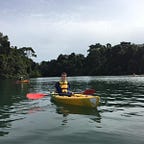The Struggle for Freedom in Sudan
As most decolonial and liberatory perspectives have rightly been focusing on the Palestinian struggle against the genocidal settler-colonial Israeli state since October 7th, the extractive and violent nature of colonialism is also being constantly enacted throughout the Global South. One of these places where colonialism and its death-making project are particularly apparent is in Sudan. Recently, I have been fortunate to attend several protests in London in solidarity with the people of Sudan and hear from people in the Sudanese diaspora calling for attention to be placed on Sudan about the war that has been raging in Sudan since April 2023 and the role of the United Arab Emirates (UAE) in using this war to extract gold to sell in European markets.
I want to give a bit of context to this war based on colonial extraction before then discussing how necessary it is for those seeking liberation for all oppressed peoples must address not only Palestine but also Sudan and all other places where colonialism must be resisted. I will discuss in general terms sexual violence and massacres ongoing in Sudan, so please consider this a warning if you find these topics triggering. I also want to say that I am very much still learning about the history of colonialism and exploitation in Sudan and very much welcome any comments on context or history that I may have missed (especially as I will be brief). In late 2018, there were massive protests in Sudan against the long-standing dictator Omar al-Bashir. In April 2019, he was overthrown, and ostensibly there were agreements to eventually transition power to an elected government. However, the Rapid Support Forces (RSF) which had its origins in the Janjaweed militia that committed massacres and genocide in Darfur in the early 2000s, began fighting with the Sudanese Armed Forces (SAF) in April 2023 in a power struggle. According to the UN, Sudan is now the largest crisis of internally displaced people in the world with 9.05 million people displaced as of the end of 2023. With the collapse of healthcare in Sudan as a result of the war, there were 10,000 suspected cholera cases as of January 2024. In Darfur, the Rapid Support Forces have committed large-scale massacres with reports of widespread sexual violence. The SAF have also committed war crimes through the shelling of civilian areas. On social media, Muslim women have asked for religious permission to commit suicide to avoid rape and sexual violence.
The roots of these conflicts in colonial violence and extraction are, of course, tied back to the UK who ruled Sudan (along with Egypt that was in effect controlled by the UK as well). During outright colonial rule, the UK invested in the north of Sudan and neglected the southern part of Sudan and the west where Darfur is. These policies directly impacted the massacres perpetrated by the Janjaweed militia and the then-ruler al-Bashir in the early 2000s when they carried out ethnic cleansing of non-Arabs in Darfur. Now, the UAE continues this colonial exploitation by using the RSF to extract gold from Sudan. Since the beginning of the war, the UAE has been supplying weapons to the RSF through Chad in shipments disguised as humanitarian aid. The UAE has been using gold mined in Al Junaid to procure weapons from the UAE. This gold is then sold on in Europe in a continuous cycle of exploitation that justifies sexual violence and mass displacement in the name of capitalist wealth accumulation and colonialism.
During the recent protests for Sudan in London, one of the chants was ‘Boycott Dubai’. This chant contextualizes how the UAE makes a huge amount of money from the tourism industry in Dubai, which it can then use to provide weapons to the RSF. This was also visible in the chant, ‘RSF kills, UAE pays, how many kids did you kill today’. Clearly, the UAE is wary of protests negatively affecting its image as it took down the UAE flag outside the embassy during the first London protest for Sudan in early January 2024. It is so important to keep up the momentum and to keep speaking up about what is happening in Sudan.
Perhaps most importantly, the organisers of these protests in Sudan connected the genocide ongoing in Sudan to the anti-colonial and anti-Zionist struggles in Palestine. One of the chants was ‘From Sudan to Palestine, occupation is a crime’. It was very inspiring and important to hear and speak such chants because the struggle of all oppressed peoples against injustice is very much interconnected. Those who want a free Palestine must also demand a free Sudan. During the first march, it was also important that the speakers pointed out the colourism and racism inherent in why Sudan is not being spoken about. The lives of black people particularly black Africans have been systemically rendered as disposable. While many very rightly point out how the settler-colonial entity of Israel systematically dehumanizes and murders Palestinians, the attention that is drawn to the Palestinian people is far greater than that of the people of Sudan and one of the biggest reasons is likely because the lives of the people in Sudan matter even less in the eyes of the dominant forces of white supremacy and colonialism.
I want to close this post on emphasizing the interconnectedness of decolonial struggle. Decolonial struggle is not some abstraction in academia but is rather happening in real time in Palestine, in Sudan, in Congo and in many more places. The freedom of all peoples necessitates the crumbling of oppressive systems like patriarchy, white supremacy, capitalism and colonialism. As if oft repeated at these protests, no one is free until all of us are free. May all these oppressive systems crumble into the dust and may the people of Sudan be free!
